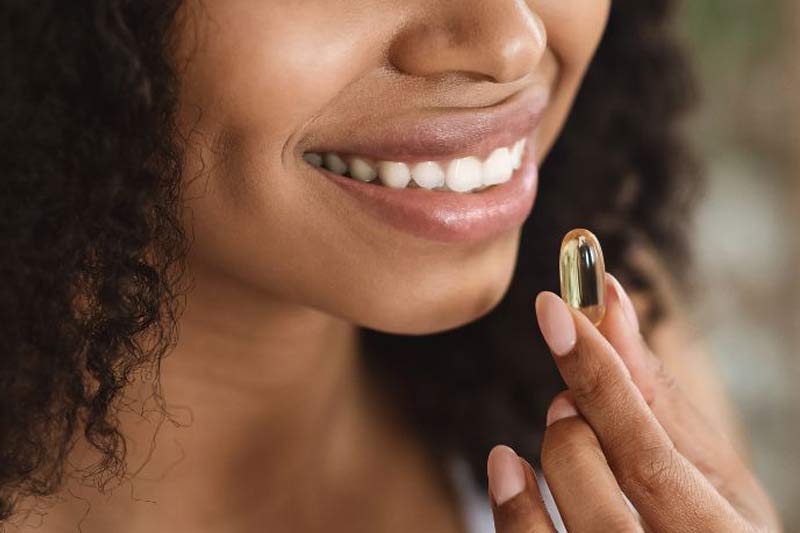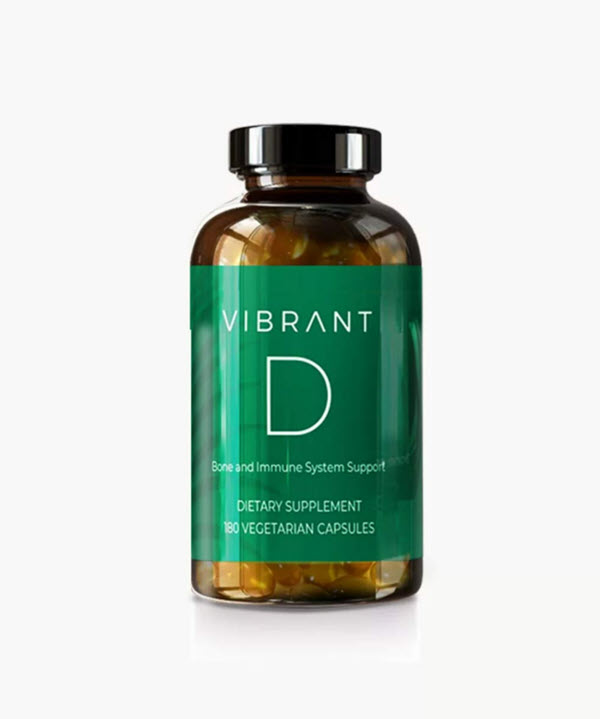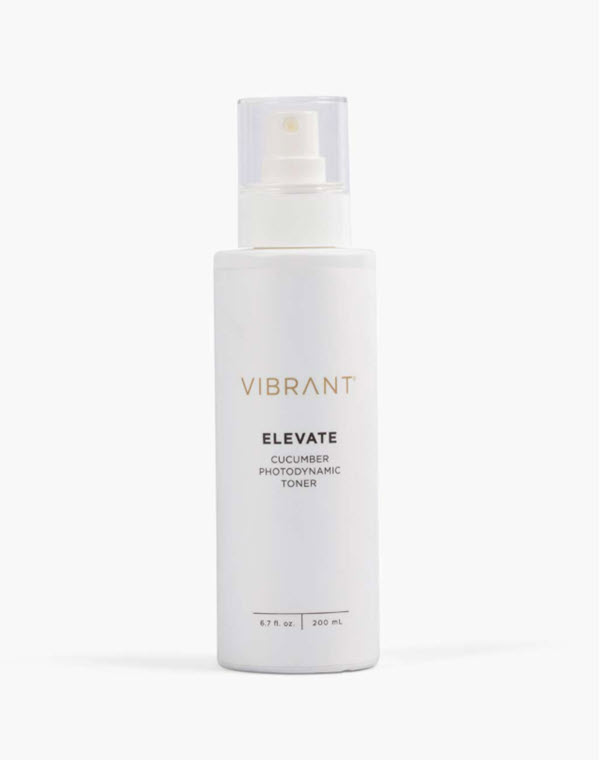Vitamin D keeps your muscles, teeth, skin, and hair healthy. It also helps regulate the amount of calcium and phosphate in your body, affecting your immune system, brain cell activity, and bone health. Deficiency can worsen skin quality, making it dull, wrinkly, and prone to inflammation.
This article explains the importance of vitamin D for skin health and practical strategies to restore it to optimal levels.

How Does Vitamin D Deficiency Affect the Skin?
Vitamin D reduces inflammation, promotes skin cell growth, and supports immunity. Low levels can provoke or worsen the following skin conditions:
- Dryness or flakiness
- Dull complexion
- Easily irritated skin
- Itchiness
- Skin inflammation
- Excessive sweating
- Redness
- Psoriasis
- Eczema (e.g., atopic dermatitis)
- Acne
- Rashes
What Does Vitamin D Do to the Skin?
Vitamin D offers numerous skin health benefits, such as the following:
- Protects against sun damage.
- Stimulates the production of hyaluronic acid, which maintains skin moisture.
- Prevents premature aging by regulating the cellular replication cycle.
- Enhances antioxidant defense against free radical damage.
- Promotes collagen production, improving elasticity, reducing wrinkles, and strengthening the skin barrier.
- Helps the body absorb calcium, promoting cell turnover, protecting against infections, and maintaining optimal moisture levels.
- Alleviates skin inflammation and enhances immunoprotection, reducing irritation, rashes, and itching.
- May reduce acne in people with vitamin D deficiency.
- Tightens loose skin and reduces sagginess.
The Best Vitamin D Sources for Skin Health
Multiple natural vitamin D sources help improve your skin and overall health. You can also use dietary supplements with a doctor’s approval if your levels are too low.
Sunlight
Vitamin D is known as the “sunshine vitamin” because our bodies produce it in response to sunlight. Five to thirty minutes a day is required for optimal vitamin D synthesis.
However, excessive exposure to sunlight damages the skin, leading to premature aging (i.e., photoaging), age spots, and even skin cancer. Be sure to apply sunscreen if you plan to spend more time outdoors to minimize UV damage.
Note: Learn how to choose sunscreen for your skin type and concern.
Food
Vitamin D is a fat-soluble vitamin that dissolves in the intestines along with dietary fats. The following foods contain higher amounts of vitamin D:
- Fatty fish (e.g., trout, salmon, mackerel)
- Fish oil (e.g., cod liver oil)
- Egg yolks
- Green leafy vegetables
- Sun-grown mushrooms
- Vitamin D-fortified foods (e.g., dairy, cereals, orange juice)
The daily recommended dose of vitamin D is 800 IU (20 mcg). You can check the nutrition facts label on packaged food for the daily value (DV) percentage to determine if a food serving is high or low in vitamin D.
Supplements
Since natural vitamin D sources are limited, dietary supplements can help combat deficiency and improve skin quality and overall health.
Always consult a doctor about vitamin supplements to prevent toxicity resulting from a higher intake. Excessive amounts of vitamin D can lead to a buildup of calcium in your blood (hypercalcemia), causing nausea, vomiting, and frequent urination.
Our skin experts recommend Vibrant D, a supplement that helps enhance skin quality, support the immune system, and improve bone and arterial health.

Topical Application
Calcitriol is a form of vitamin D that can be used topically to treat psoriasis and similar skin conditions. This anti-psoriatic medication helps alleviate symptoms such as scaliness, itchiness, and thickened skin.
It is available only with a doctor’s prescription and can be used alone or with corticosteroids to treat plaque-type psoriasis. Talk to a dermatologist to determine if a calcitriol cream may help improve your skin condition.
We recommend Vibrant Elevate, a photodynamic toner that supports the skin’s microbiome, fights free radicals, and increases vitamin D production. Its unique formulation contains a blend of cucumber, matcha tea, Tonka bean prebiotic, and Nectaria lithops.

Note: Learn how vitamin D can help prevent hormonal hair loss.
How to Use Vitamin D for the Skin?
You can boost your vitamin D levels in the following ways:
- Spend five to thirty minutes a day in sunlight to obtain an optimal amount. Sunscreen is not always necessary during this brief exposure, as it may reduce the absorption of UVB rays, which help synthesize vitamin D. If you spend more time in direct sunlight, apply sunscreen.
- Incorporate food that naturally contains vitamin D into every meal, such as fatty fish, sun-exposed mushrooms, and fortified foods such as milk and cereal. If you choose to add fish oil to your diet, make sure not to exceed the upper limit of recommended dietary allowance (RDA).
- Look for supplements with D3 (cholecalciferol), as it is more effective at raising blood levels of vitamin D than D2 (ergocalciferol). Talk to your healthcare provider to determine the appropriate dosage and prevent complications, as taking over 4000 IU (100 mcg) of vitamin D daily may lead to high blood calcium levels.
Can I Apply Vitamin D Directly to My Skin?
This study confirms that applying vitamin D3 directly to your skin is a safe and effective treatment for vitamin D deficiency. However, calcitriol-based creams and topical ointments are widely used to treat mild to moderate psoriasis and are available by prescription only.
How Long After Taking Vitamin D for the Skin Will I See the Results?
It typically takes a few weeks of daily vitamin D supplementation to raise blood levels. Severe deficiencies may take months to resolve, depending on initial levels and factors like obesity, malabsorption, or environmental conditions.
Studies show that high-dose weekly supplementation can resolve insufficiency in 12 weeks.
Are There Any Side Effects of Vitamin D on the Skin?
A higher dosage of supplements or prolonged topical application may lead to vitamin D toxicity. Vitamin D from sunlight and food won’t cause this issue. Sensitive skin may become hypersensitive to the vitamin or develop an allergic reaction.
Over-supplementation may affect your skin quality and provoke the following:
- Itching
- Rashes
- Dryness
- Allergic reactions
- Photosensitivity (i.e., sensitivity to sunlight)
- Skin irritation
Vitamin D toxicity also includes the following physical symptoms:
- Thirst
- Nausea
- Frequent urination
- Constipation
- Confusion
- Weakness
- Bone aches
- Weight loss
- Fatigue
- Metallic taste
- Loss of appetite
- Vomiting
- Sore eyes
Conclusion
Lack of vitamin D can impair your health and affect your skin. Optimizing levels significantly improves skin quality by enhancing its resilience, immune function, and anti-inflammatory response. You can obtain vitamin D naturally through sunlight or by adding to your diet through food and supplements.
Contact our friendly Vibrant Skin Bar staff to learn how vitamins can help combat stress, restore hormonal balance, and improve overall health.


